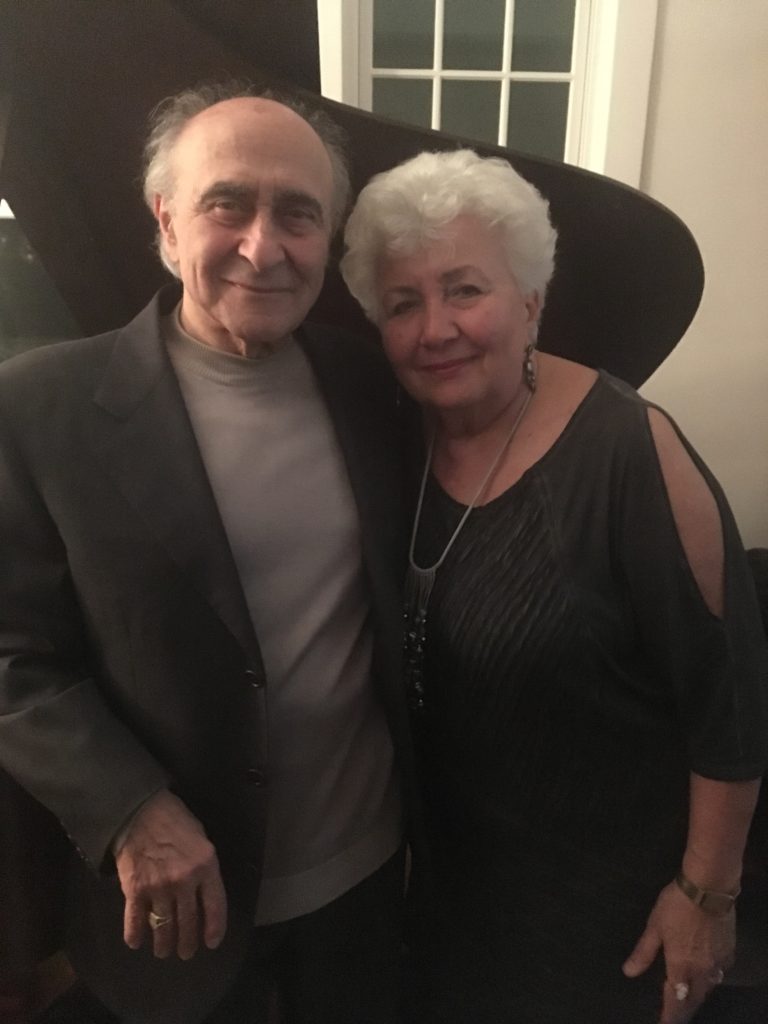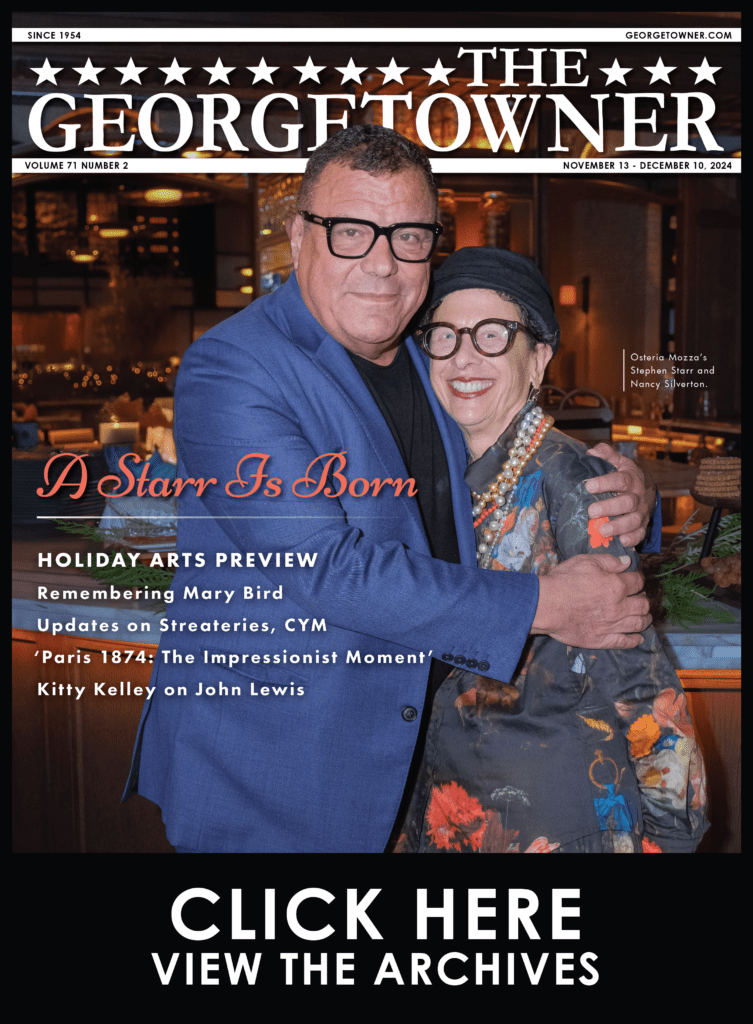Brother and Sister: 50 Years of Performing
By • December 6, 2017 0 1474

Vera Danchenko-Stern, founder and artistic director of the Russian Chamber Art Society, turned 75 on Nov. 16. Speaking to The Georgetowner last month at her Alexandria, Virginia, home, she said it was “unbelievable how fast 75 years has passed. But I had many lives, so if you break it into at least two lives then I’m still a little bit over 35 years old.”
Danchenko-Stern’s first life ended when she emigrated from the Soviet Union in 1978. “I left Moscow with my two young children, 6 and 11, and two elderly parents. And yet once we got to Rome it was my Roman holiday. And despite I’m working very hard — the only break from my piano was about two weeks, after which I was immediately engaged into accompanying one of the American sopranos and two of Italy, which gave me a chance to earn some money in order to buy warm clothes for myself and my children, because we [were] supposed to come to Canada during winter months.”
Her older brother Victor Danchenko, a violinist who studied at the Moscow Conservatory with the legendary David Oistrakh, had emigrated to Toronto a year earlier. Abruptly giving up a successful performing and recording career in the Soviet Union, he had joined the faculty of the Royal Conservatory of Music. Danchenko-Stern was to join the piano faculty. (Both later emigrated to the U.S. and took teaching positions at Baltimore’s Peabody Institute.)
A graduate of Moscow’s Gnessin Institute, Danchenko-Stern had been accompanying her brother since childhood. “I do believe that they [her musician parents] pre-programmed me to accompany their son. So I think it was predestined,” she said wryly.
The siblings made their first of several professional concert tours in November of 1967, starting out in Tashkent, the capital of what was then the Uzbek Soviet Socialist Republic, the year after a tragic earthquake hit the city. “That was the beginning of our long journey with fantastic music in all and every combinations,” she said.
To celebrate both Danchenko-Stern’s 75th birthday and her 50 years of performing with her brother, on Friday, Dec. 8, the duo will perform Mozart’s Violin Sonata No. 25, Tchaikovsky’s “Meditation,” Shechedrin’s “In the Style of Albeniz” and selections from Prokofiev’s “Romeo and Juliet” and “Love for Three Oranges” at “Stars of the RCAS,” a Russian Chamber Art Society concert at the Embassy of France.
The second half will feature performances of works by Balakirev, Borodin, Cui, Glinka, Rachmaninoff, Tchaikovsky and other Russian composers by soprano Jennifer Casey Cabot, baritone Timothy Mix, mezzo-soprano Susana Poretsky, bass Nikita Storojev, clarinetist Julian Milkis, bayan player Alexander Sevastian and pianists Tatiana Storozheva and Genadi Zagor
Now 80, Danchenko recently moved back to Toronto after retiring from the Peabody and Curtis Institutes. On Nov. 19, he gave a concert at the Royal Conservatory with his sister and with his student Martin Beaver, first violinist of the renowned Tokyo String Quartet, which disbanded in 2013.
Equally committed to teaching, Danchenko-Stern is also a missionary for Russian vocal music, especially art songs, known as romances. She has taught the “Singing in Russian” class at Peabody for 25 years, giving Peabody graduates an advantage when competing for spots with opera companies, including the Met and Washington National Opera, where Danchenko-Stern has been the Russian vocal coach since the 1990s.
Her last assignment with the company was in 2005, when WNO presented Tchaikovsky’s “Maid of Orleans.” “That was the last public operatic performance of Signora [Mirella] Freni, 70 years old, singing phenomenally the role of 15-years-old Joan of Arc,” she recalled.
In 2005, she and her late husband Lev Stern, who worked for Voice of America, founded RCAS, which now presents a four-concert season. The singers are among the top emerging performers of Russian repertoire, both native Russian speakers and Americans who have studied with or been coached by Danchenko-Stern. On four occasions, she took students from Peabody to perform in Russia.
Her obsession with teaching singers how to properly perform Russian repertoire began in her years in Canada as a teacher and an accompanist. “The world-class singers made the same phonetical mistakes as maybe young students who wanted to approach this repertoire. And it was not just one single experience. It was sort of like mass problem of how to sing Russian music … without any accent, authentically Russian.”
And what is it like to rehearse and perform with her brother after 50 years?
“It’s a love and hate relationship, like everything,” she joked, “but it’s more love than hate. Because we’ve both discovered that it’s not about us, it’s about music-making. … So it’s just a life conversation of two people old enough now to have something to say with great respect to each other. No more childish screaming and no more, really, words, because what we’re talking is philosophy.”
She summed up: “That’s music, it’s always new. You really cannot step in the same water twice.”

